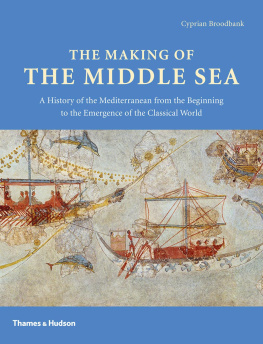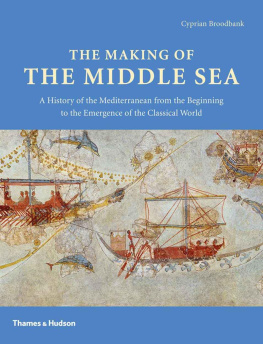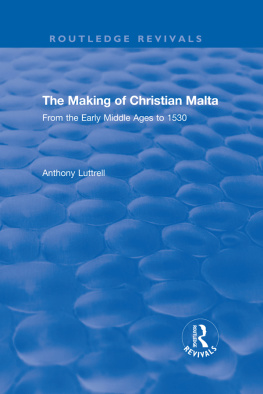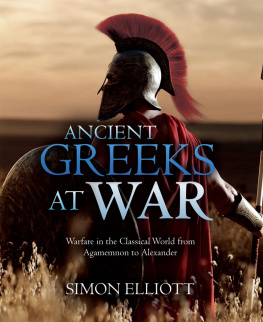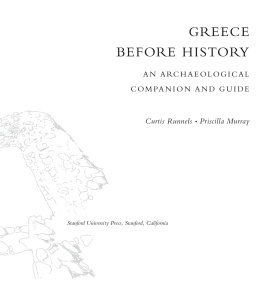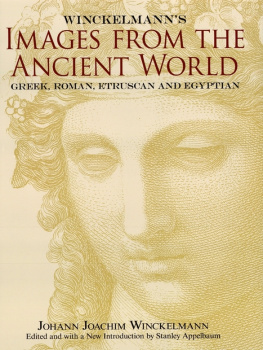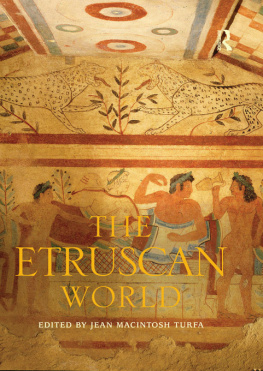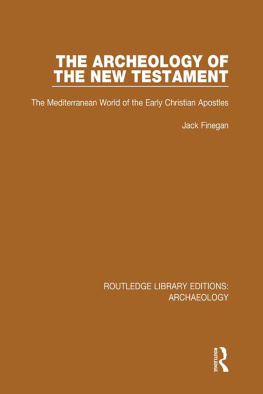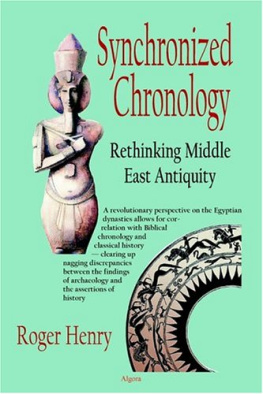Cyprian Broodbank - The Making of the Middle Sea
Here you can read online Cyprian Broodbank - The Making of the Middle Sea full text of the book (entire story) in english for free. Download pdf and epub, get meaning, cover and reviews about this ebook. publisher: Thames & Hudson, genre: Politics. Description of the work, (preface) as well as reviews are available. Best literature library LitArk.com created for fans of good reading and offers a wide selection of genres:
Romance novel
Science fiction
Adventure
Detective
Science
History
Home and family
Prose
Art
Politics
Computer
Non-fiction
Religion
Business
Children
Humor
Choose a favorite category and find really read worthwhile books. Enjoy immersion in the world of imagination, feel the emotions of the characters or learn something new for yourself, make an fascinating discovery.
- Book:The Making of the Middle Sea
- Author:
- Publisher:Thames & Hudson
- Genre:
- Rating:3 / 5
- Favourites:Add to favourites
- Your mark:
- 60
- 1
- 2
- 3
- 4
- 5
The Making of the Middle Sea: summary, description and annotation
We offer to read an annotation, description, summary or preface (depends on what the author of the book "The Making of the Middle Sea" wrote himself). If you haven't found the necessary information about the book — write in the comments, we will try to find it.
A masterpiece of archaeological and historical writing, The Making of the Middle Sea is extensively illustrated and ranges across disciplines, subject matter and chronology from early humans and the origins of farming and metallurgy to the rise of civilizations - Egyptian, Minoan, Mycenaean, Phoenician, Etruscan, early Greek and pan-Mediterranean.
The Making of the Middle Sea — read online for free the complete book (whole text) full work
Below is the text of the book, divided by pages. System saving the place of the last page read, allows you to conveniently read the book "The Making of the Middle Sea" online for free, without having to search again every time where you left off. Put a bookmark, and you can go to the page where you finished reading at any time.
Font size:
Interval:
Bookmark:
About the Author
Cyprian Broodbank is Professor of Mediterranean Archaeology at the Institute of Archaeology, University College London, and has held fellowships and visiting appointments in connection with this book from All Souls College, Oxford, the University of Cincinnati, UCLA and the British Academy. His previous book, An Island Archaeology of the Early Cyclades (Cambridge University Press, 2000), won two international book prizes: the James R. Wiseman award of the Archaeological Institute of America (for all fields of archaeology), and the Runciman Prize (for all fields of Hellenic Studies).
This is a book that many people with whom I spoke insisted could, or perhaps should, not be written. Whether or not they were right the reader will judge. Regardless, I am profoundly grateful to those who thought the attempt worthwhile and backed a single authors potential coherence of vision, and the accompanying weaknesses, against the collective knowledge of the many. Whatever errors this book must contain have been greatly reduced, and its qualities substantially enhanced, by comments on the whole or parts from Carol Bell, Andrew Bevan, Denis and Hanna Broodbank, John Cherry, James Clackson, Kevan Edinborough, Borja Legarra Herrero, Vangelio Kiriatzi, Bernard Knapp, Ezra Marcus, Louise Martin, Ian Morris, Simone Mulazzani, Corinna Riva, John Robb, Stephen Shennan, Susan Sherratt, Robin Skeates, Lindsay Spencer, Mary Stiner, Jeremy Tanner, Ignacio de la Torre, Marc Vander Linden, Peter van Dommelen, David Wengrow, Ruth Whitehouse and Todd Whitelaw. Peregrine Horden and Nicholas Purcell, whose thought-provoking conception of subsequent Mediterranean history directly inspired my own effort, have been immensely supportive throughout, and without the patience and encouragement at Thames & Hudson of Colin Ridler, best of editors, together with the extraordinary talents of Ben Plumridge, Pauline Hubner, Geoff Penna, Alice Reid, Celia Falconer and Dora Kemp, I doubt whether this book would ever have appeared. To all of these, my very warmest thanks.
I am grateful for further advice, information, access to literature and all kinds of other help and kindness to Christos Agouridis, Susan Alcock, Tonyo Alcover, Michal Artzy, Ceri Ashley, Jacqueline Balen, Nick Barton, Lisa Bendall, John Bennet, Philip Betancourt, Emma Blake, Richard Bussmann, Joanne Clarke, Sue Colledge, James Conolly, Enrico Crema, Lindy Crewe, Jack Davis, Pierre Desrosiers, Ernestine Elster, Ian Freestone, Stao Forenbaher, Lin Foxhall, Dorian Fuller, Nena Galanidou, Ehud Galili, John-Vincent Gallagher, Andrew Garrard, Michael Given, Claudia Glatz, Chris Gosden, Rafi Greenberg, Victor Guerrero Ayuso, Paul Halstead, Yannis Hamilakis, Susanna Harris, Tamar Hodos, Francesco Iacono, Valasia Isaakidou, David Jeffreys, Fernanda Kalazich, Branko Kirigin, Kostas Kotsakis, Olga Krzyszkowska, Irene Lemos, Fulvia Lo Schiavo, Simona Losi, David Lubell, Leilani Lucas, Virginia McRostie, Joseph Maran, Massimiliano Marazzi, Marcos Martinn-Torres, Stephen Mitchell, Sarah Morris, Denitsa Nenova, Sam Nixon, Mihriban zbaaran, Yiannis Papadatos, Edgar Peltenburg, John Papadopoulos, Nellie Phoca-Cosmetatou, Miljana Radivojevi, Lorenz Rahmstorf, Dami Ramis, Thilo Rehren, Colin Renfrew, Roberto Risch, Arlene Rosen, Curtis Runnels, Andrew Shapland, Ruth Siddall, Daniel Smail, Rachael Sparks, Simon Stoddart, Thomas Strasser, Geoffrey Tassie, Ken Thomas, Helena Tomas, Maurizio Tosi, Kathy Tubb, Sebastiano Tusa, Nick Vella, Andrea Vianello, Jean-Denis Vigne, Jaime Vives Ferrndiz, Cheryl Ward, Jennifer Wexler, Malcolm Wiener, Jamie Woodward and Karen Wright. Additional thanks to Mge Durusu-Tanriover, Tom Leppard, Clive Vella, Andrew Dufton, Pinar Durgun, Alex Knodell, Ian Randall and other members of John Cherrys graduate class at the Joukowsky Institute of Brown University, who read an advanced version of the manuscript as coursework and offered last-minute responses full of insight. Camilla Briault, Jo Cutler and Borja Legarra Herrero have all provided invaluable practical support with notes and references at different junctures, and my equal thanks go to the UCL Institute of Archaeologys unfailingly helpful librarians, Robert Kirby and Katie Meheux.
Two Directors at UCLs Institute of Archaeology, Peter Ucko and Stephen Shennan, with much appreciated advocacy from Ruth Whitehouse, granted me the initial leave to get this project underway. During parts of this I was sustained by visiting fellowships at All Souls College, Oxford, and the Classics department of Cincinnati University, a Samuel H. Kress Lectureship in Ancient Art from the Archaeological Institute of America, as well as generous grants from the Loeb Classical Library Foundation of Harvard University, Richard Bradford McConnell Trust, Dr M. Aylwin Cotton Foundation, University College London and the Cotsen Institute of Archaeology at UCLA. I thank all these for their support and apologize for the repeatedly delayed return on their investment. The final stages were greatly eased by a Mid-Career Fellowship from the British Academy, and a generous publication grant from the Institute for Aegean Prehistory.
To leave my most heartfelt acknowledgment until last, anyone familiar with Andrew Sherratts ways of thinking will recognize the extent of his inspiration, which goes deeper than a multitude of citations can express. It was Andrew who threw down the gauntlet in 1992, observing that The Mediterranean in the Age of Tuthmosis III remains to be written and, two years later, that without the Bronze Age, Braudels Mediterranean would not have existed. I would not have had the courage to set out on this endeavour but for Andrews example over the course of twenty years of friendship, and my trust in the assurance of his wise advice, ever-creative eye for the links I had missed, and enthusiasm for canvases on the scale that this book sets out to cover. We were all robbed of such assurances by Andrews sudden, far too early death in 2006, when most of this book was still a mass of notes. To, and from, Andrew, lux aeterna.
ABBREVIATIONS USED
CNRS = Centre National de la Recherche Scientifique
MIAR = McDonald Institute for Archaeological Research
UP = University Press
AAR = African Archaeological Review
ABSA = Annual of the British School at Athens
AJA = American Journal of Archaeology
ARP = Accordia Research Papers
L = gypten und Levante
AS = Anatolian Studies
BASOR = Bulletin of the American Schools of Oriental Research
BSPF = Bulletin de la Socit Prhistorique Franaise
CA = Current Anthropology
CAJ = Cambridge Archaeological Journal
EA = Evolutionary Anthropology
EJA = European Journal of Archaeology
JAA = Journal of Anthropological Archaeology
JAS = Journal of Archaeological Science
JB = Journal of Biogeography
JEA = Journal of European Archaeology
JHE = Journal of Human Evolution
JMA = Journal of Mediterranean Archaeology
JQS = Journal of Quaternary Science
JWP = Journal of World Prehistory
LS = Libyan Studies
MHR = Mediterranean Historical Review
OJA = Oxford Journal of Archaeology
PCPS =Proceedings of the Cambridge Philological Society
PNAS = Proceedings of the National Academy of Sciences
PPS = Proceedings of the Prehistoric Society
QI = Quaternary International
QR = Quaternary Research
QSR = Quaternary Science Reviews
WA = World Archaeology
Abulafia, D., (ed.) 2003. The Mediterranean in History. London: Thames & Hudson. Los Angeles: J. Paul Getty Museum.
2005. Mediterraneans in W. V. Harris 2005a, 6493.
2011. The Great Sea: A Human History of the Mediterranean. London: Allen Lane. New York: Oxford UP.
Adams, E., 2004. Power Relations in Minoan Palatial Towns: An Analysis of Neopalatial Knossos and Malia.
Next pageFont size:
Interval:
Bookmark:
Similar books «The Making of the Middle Sea»
Look at similar books to The Making of the Middle Sea. We have selected literature similar in name and meaning in the hope of providing readers with more options to find new, interesting, not yet read works.
Discussion, reviews of the book The Making of the Middle Sea and just readers' own opinions. Leave your comments, write what you think about the work, its meaning or the main characters. Specify what exactly you liked and what you didn't like, and why you think so.

